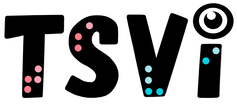- Home
-
Learn
- History of VI >
- Legislation & Laws >
- Vision Professionals >
-
VI Program Resources
>
- Program Printables
- Itinerant Teaching Tips
- Year at a Glance
- VI Program Handbook
- Caseload Analysis
- Organization & Time Management
- Professional Development
- Teacher Standards
- Professional Ethics
- Awards & Recognition
- APH Scholar Program
- Professional Organizations
- Certification Organizations
- Dealing with Challenges
- Professional Publications >
- Relatable Books for All Ages >
- Family Resources >
- Plan
- Basics
-
Teach
- Teaching Strategies >
-
Compensatory Skills Instruction
>
-
Social Skills
>
-
Self Determination
>
- Body Image & Acceptance
- Making Personal Goals
- My Vision Presentation
- My Self-Description
- Create a Personal Data Sheet
- Disclosure Decision
- Disability Statement
- Requesting Help
- Fighting Fears
- My Circle of Support
- Personal Responsibility
- Advocate for Safe Enviroments
- Having Picture Taken
- Coping with Change
- Aging Eyes
- Physical Characteristics
- Political Activism
- Laws Regarding Persons with Disabilities
-
Sensory Efficiency
>
-
Independent Living
>
- Orientation & Mobility Instruction >
- Recreation & Leisure >
-
Career & Vocation
>
-
Grow
- Complete Set Bonus >
-
Recorded Presentations
>
- Webinar: Tips for Being a "Physically Fit" TVI
- Webinar: The Art of Teaching the ECC
- Webinar: Virtual & F2F Strategies
- Webinar: Foundations of Teaching the ECC in the Age of Virtual Instruction
- Webinar: Itinerant Teaching Strategies
- Webinar: Using Themes to Teach the ECC
- Webinar: Conducting a FVLMA
- Webinar: Selecting the Right AT
- Webinar: Developing SMARTER Goals
- Webinar: Determining Service Intensity Using the VISSIT
- Webinar: Activities to Teach the ECC
- Webinar: Accessible Content for BLVI
- Webinar: Accommodations for VI
- Webinar: MIMO Strategies & Activities
- Webinar: SIDPID Strategies & Activities
- Webinar: Standard Course of Study Strategies & Activities
- Webinar: Job Tasks for Job, Career & Life
- Shop
- Jobs
Frequently Asked QuestionsI'm interested in becoming a vision professional. Where can I learn more?How wonderful that you're thinking of joining the field of visual impairments! There is currently a nationwide shortage of vision professionals! You can learn more about the different careers in the vision field: Teachers of Students with Visual Impairments, Orientation & Mobility Specialists, Vocational Rehabilitation Specialists, Low Vision Specialists, and braillists/paraprofessionals. You can find a list of professional preparation programs here. Some universities offer online coursework, while others require you to attend traditional on-campus courses, while still others offer a combination. As university coursework changes, you will need to contact the universities directly. You can follow the link to their program sites to learn more detailed information.
My child is blind or visually impaired. Where can I find support?I hope that the pages throughout this website can provide you with the information to support your child and your child's educational team. If you aren't sure of resources in your state, the American Printing House for the Blind maintains an excellent listing of services that are available in each state and manages a Connect Center to support professionals, families, and consumers. For information about educational guidelines in your state, you may find it helpful to contact the vision specialist at the Department of Education in your state. Are you in need of a vision advocate? The American Council of the Blind may be able to help or point you in the right direction. Additionally, you may want to join a support network, such as Family Connect and/or a support network specific to your child's visual diagnosis.
My adult family member (or friend) is blind or visually impaired. Where can I find help?The American Printing House for the Blind has an excellent listing of services that are available in each state. Additionally, VisionAware is specifically designed for adults who are losing their site. As a Teacher of Students with Visual Impairments, my expertise is in the education of children ages birth through 22 who are blind or visually impaired. My expertise is not with serving adults, that being said, you may find information throughout this website that can provide you with strategies and suggestions in supporting your adult loved one.
Our program has a vacancy for a visual impairment professional. How can I post our vacancy?You can and should post your vacancy on your program's website, but how do you guarantee vision professionals find your posting? You could post your vacancy on traditional job posting boards that are available for all jobs, but I suggest you post on a website that is frequented by vision professionals. AER offers a job posting board that is known to and used by many vision professionals. I offer job postings here at a rate of $50 for the first month and a reduced price ($25) for subsequent months as I know that it can take longer than usual to fill vacancies in the field of visual impairments. I charge a fee to ensure the postings are real and current as well as to recuperate the costs of maintaining this web resource. Additionally, you may want to reference the presentation I gave at the Council of Schools for the Blind on strategies for recruitment and career growth.
How can I become a member and access the Members Only pages?You can become a member by clicking on the "Log In | Register" tab at the top of the page. You will be prompted to create a password. You will then be able to access members-only pages including Printables and Presentations. These are FREE resources available to members. By signing up for a membership you will need to provide your email address. Please review the privacy policy for how this information is used. I value your privacy as I value my own. There are additional member-only pages that are accessible only to individuals who have purchased the TVI's Guide to Teaching the ECC Complete Set as my way of saying "Thank You!". These pages provide information to support the activities identified in the TVI's Guide to Teaching the ECC and also include additional printables to support those activities.
Is Teaching Students with Visual Impairments an organization?The web resource Teaching Students with Visual Impairments was created and continues to be maintained by Carmen Willings, a Teacher of Students with Visual Impairments. The job postings, ads, and affiliate links throughout the website cover the cost of operation of the website. Thank you for your support! While Teaching Students with Visual Impairments is a registered LLC, I am not an organization, my goal is to direct you to organizations and resources that can help you throughout the pages of this website. If there are vision specific programs or resources you know of that you feel should be listed within the pages, please let me know so I can add them! There are submissions forms throughout the website for your convenience. If you'd like to learn more about my background, visit the About page.
Where is your contact information? I'd like to connect with you.I hope that the above Q&A will help answer any questions you may have. Although I do not display my email on the website, you can connect with me via LinkedIn, via the Teaching Students with Visual Impairments Facebook page, or complete the form on my contact page. There is also a form you may complete if you have job posting questions. There are also forms throughout the site where you are encouraged to provide suggestions on resources to add. Additionally, I will periodically seek specific feedback from members via surveys. If you need support regarding purchase of one of the digital downloads available for sale or my handcrafted jewelry, complete the form on the support page. |
History of vi
Visual Impairments
Vi organizations & Agencies
VI book resources
VI Professionals
Professionalism
Instructional Planning
Professional Publications
Educational Programming
Individual Learning Differences
referrals
Medical vision exams
fvlma
additional evaluations
service planning
writing goals
compensatory skills
Guiding Principles Functional Skills Community Based Experiences Concepts to Teach Organization & Study Skills Time Management Virtual Instruction Movies & Assemblies Lectures & Instruction Board Work (Chalk, White, etc.) Daily Schedule Morning Meeting Weather Check Dramatic Play Blocks Numbers & Counting Cranmer Abacus Instruction Algebra Geometry & Spatial Sense Measurement & Data Early Literacy Experiences Create Tactual Books Reading Instruction Reading Efficiency Science Adaptations Social Studies Adaptations Accessible Educational Materials Individual Schedules & Communication Cards Adjust Lighting Large Print Optical Devices for Near Optical Devices for Distance Optical Device Use Photocopying Font Legibility Increase Contrast Pictures & Worksheets Keyboarding Instruction Word Processing and Shortcuts Navigate Computer w/o a Mouse Braille Code Braille Instruction Braille Instruction Materials Writing Braille Summer Reading (braille) Signature & Handwriting Nemeth Braille Code Tactile Graphics Guidelines Creating Tactile Graphics Tactile Graphics Instruction Teacher Made Materials Labeling System assistive technology
Overview of Assistive Technology VI AT Resources Non-Optical Low Vision Devices Video Magnifiers Video Magnifier Instruction Screen Enlargement & Readers Low/Med. Tech Tactual Devices Notetaker Instruction Braillewriter Repair Tactile Graphics Technology Braille Technology Auditory Access Devices Accessing Audio Books iPads as Instructional Tools Making iOS Device Accessible iOS Accessibility Resources VoiceOver Apps for VI Note Taking apps Apps for Accessing Books Identification Apps Navigation & Location Apps Braille Apps Magnifier Apps Sound Making Apps Cause & Effect Apps Vision Skills Apps Apps for Early Learning Read to Me Story Apps Apps for Communication Android Apps for VI sensory efficiency
Sensory Input Encourage Use of Vision Sensory Area & Rooms Lightbox Use Sensory Activities for Students with Multiple Disabilities Sensory Tables Visual Efficiency Skills Visual Attend and Scan Activities Visual Tracking Activities Visual Discrimination Activities Visual Motor Activities Tactual Readiness Developing Skillful Hands Auditory Readiness Listening Skill Instruction independent living
orientation & Mobility
career education
recreation & Leisure
self determination
|
|
Teaching Students with Visual Impairments LLC
All Rights Reserved |
- Home
-
Learn
- History of VI >
- Legislation & Laws >
- Vision Professionals >
-
VI Program Resources
>
- Program Printables
- Itinerant Teaching Tips
- Year at a Glance
- VI Program Handbook
- Caseload Analysis
- Organization & Time Management
- Professional Development
- Teacher Standards
- Professional Ethics
- Awards & Recognition
- APH Scholar Program
- Professional Organizations
- Certification Organizations
- Dealing with Challenges
- Professional Publications >
- Relatable Books for All Ages >
- Family Resources >
- Plan
- Basics
-
Teach
- Teaching Strategies >
-
Compensatory Skills Instruction
>
-
Social Skills
>
-
Self Determination
>
- Body Image & Acceptance
- Making Personal Goals
- My Vision Presentation
- My Self-Description
- Create a Personal Data Sheet
- Disclosure Decision
- Disability Statement
- Requesting Help
- Fighting Fears
- My Circle of Support
- Personal Responsibility
- Advocate for Safe Enviroments
- Having Picture Taken
- Coping with Change
- Aging Eyes
- Physical Characteristics
- Political Activism
- Laws Regarding Persons with Disabilities
-
Sensory Efficiency
>
-
Independent Living
>
- Orientation & Mobility Instruction >
- Recreation & Leisure >
-
Career & Vocation
>
-
Grow
- Complete Set Bonus >
-
Recorded Presentations
>
- Webinar: Tips for Being a "Physically Fit" TVI
- Webinar: The Art of Teaching the ECC
- Webinar: Virtual & F2F Strategies
- Webinar: Foundations of Teaching the ECC in the Age of Virtual Instruction
- Webinar: Itinerant Teaching Strategies
- Webinar: Using Themes to Teach the ECC
- Webinar: Conducting a FVLMA
- Webinar: Selecting the Right AT
- Webinar: Developing SMARTER Goals
- Webinar: Determining Service Intensity Using the VISSIT
- Webinar: Activities to Teach the ECC
- Webinar: Accessible Content for BLVI
- Webinar: Accommodations for VI
- Webinar: MIMO Strategies & Activities
- Webinar: SIDPID Strategies & Activities
- Webinar: Standard Course of Study Strategies & Activities
- Webinar: Job Tasks for Job, Career & Life
- Shop
- Jobs

